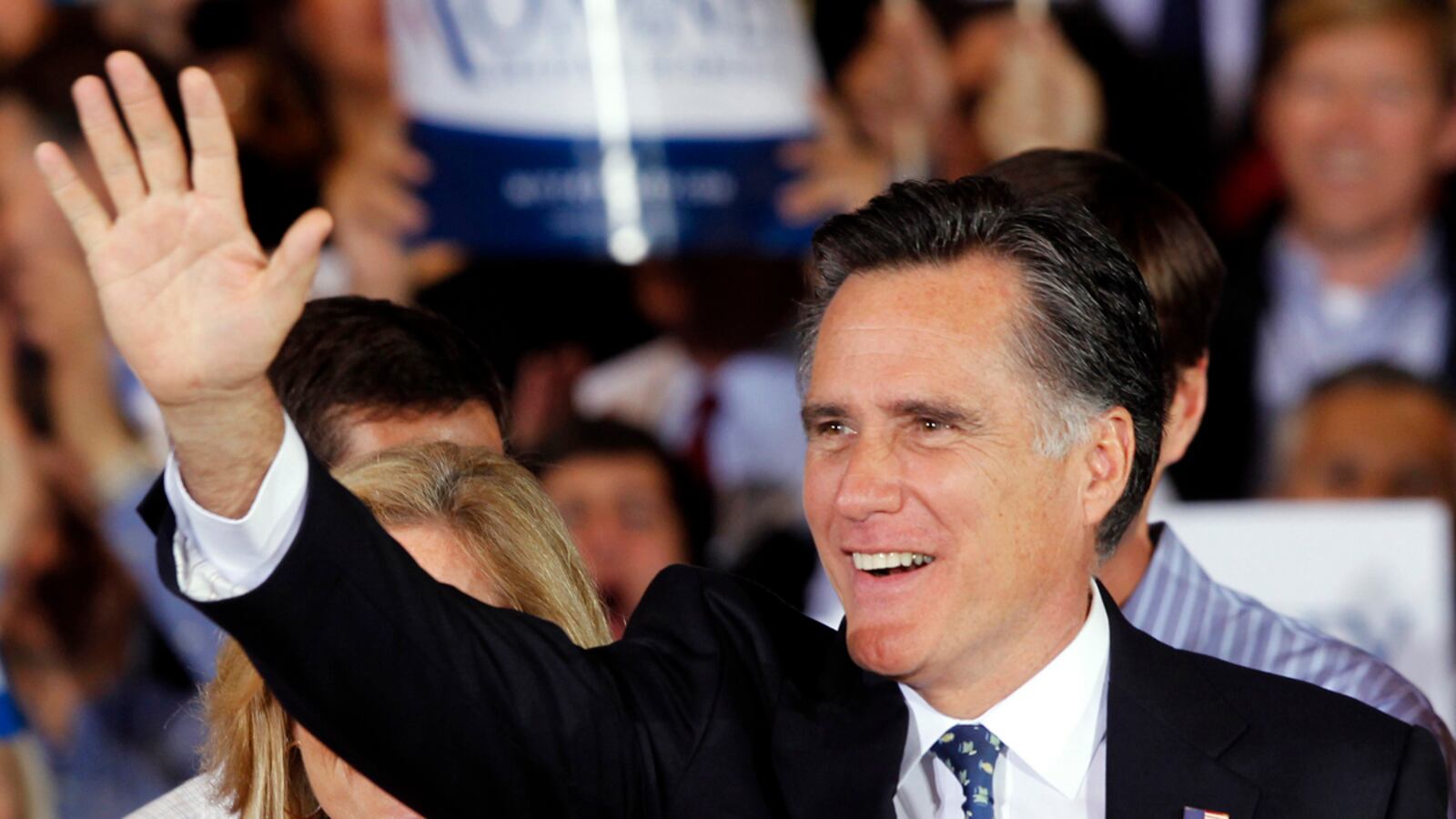Yes, Mitt Romney had a big win in Florida last night. He’s won two of the first four primary states, totaling 84 delegates to date. But he needs 1,144 to clinch the Republican nomination; he’s just 7 percent of the way there. So call off the coronation—give people in the other 46 states a chance to vote.

“We’re in the first quarter,” says John Brabender, chief aide to Rick Santorum, responding to suggestions that the race is over with a simple “Are you kidding?” Likewise, Team Newt and Ron Paul’s campaign have sworn to carry this fight on.
And while momentum and money and media perception are all very important, in the end math matters the most when it comes to capturing the nomination. And it is mathematically impossible for any candidate to win the requisite number of delegates until late April or early May. So unless the other candidates cede the field entirely, there will be a contest. And given the debates still going on inside the GOP, that’s healthy.
A significant obstacle in the Romney march to the nomination is the fact that most states in the next two months are proportional rather than winner-take-all—meaning that Ron Paul’s strong supporters can start adding to their delegate count even if they don’t win outright, just as social conservatives might rally around Santorum and Newt supporters around Newt. Given that each of the remaining candidates represents a separate conservative constituency, the march to 1,144 is likely to be long. Proportional allocation of delegates “will slow Romney down until he can be defeated,” argues Brabender, with just a hint of overconfidence.
Romney’s strengths are considerable at this stage: he has money and organizational advantage that the other candidates can’t match. He’s also the longtime conventional-wisdom frontrunner, and Republican history suggests that they settle on the next guy in line after serious flirting with some dark horses along the way. But it’s also true that even some of Romney’s supporters seem reluctant, while his opponents in the Republican Party are intense and so far appear to make up a majority of conservatives. Romney seems to do best in comparison with the alternatives in this problematic field rather than inspiring passion on his own.
As an independent, I don’t have a dog in this fight. But I do have an old-fashioned civic notion about people being able to vote and have their voices heard. The primaries are not just a media exercise—and despite our penchant for short-attention-span theater, we shouldn’t just fast-forward to the general election.
February is a relatively slow month, with the Nevada caucus this coming Saturday (where the Paulites are especially well organized), followed by contests in Maine, Colorado, and Minnesota. At the end of the month, Arizona and Michigan are the big prizes, with 59 delegates between them.
Super Tuesday is March 6, with 10 states voting (more than double the states to date), and all of them are proportional. Among these are Newt’s home state of Georgia and Sarah Palin’s Alaska. Romney and Ron Paul will have Virginia to carve up between themselves because Newt and Santorum failed to make the ballot. But states like Ohio, Oklahoma, Idaho, and Tennessee are all likely to be competitive. In total, 427 delegates will be awarded that day—and no one will win them all.
After Super Tuesday, and not today, we’ll have a much clearer sense of who the nominee will be. But still no candidate will have enough delegates to clinch the nomination. At that point, however, calls for other candidates to get out will be appropriate. That is the role that Super Tuesday has played historically, and for good reason—at that point, at least a representative sample of states will have voted, 20 out of the 50. If anyone is going to be a serious competitor to Mitt Romney, as Reagan was to Gerald Ford in 1976, we’ll know by then.
Nonetheless, it won’t be until winner-take-all states—like Texas, with its 155 delegates, more than one tenth the total needed—start taking hold in April that the nomination really starts to be a done deal. And that’s called earning it.
The point is not that I don’t think Mitt Romney will be the eventual Republican nominee, barring a mutiny at the Tampa convention. And I fully expect that Romney staffers and spinners will be arguing for the other candidates to drop out ASAP. What bothers me is other people being complicit in their con, the cynicism and/or insider arrogance of observers who want to call the game before it’s over, before more people have a chance to vote.
In our political process, we spend the better part of a year looking forward to the primaries, following candidates on every step of the early stages of the campaign. And then when the primaries actually start happening in the real presidential year, we can’t be bothered to let the process play out.
“It’s not over” isn’t a statement of defiance, denial, or wishful thinking. It’s a fact. The other candidates can continue on—and more voters deserve to have their voices heard.
Read More Daily Beast Contributors about the Florida Primary:Michael Tomasky: It’s Over for NewtJohn Avlon: This Race Is Far From OverMichelle Goldberg: Why Liberals Should Love NewtDavid Frum: Gingrich Knows It’s Over& More






